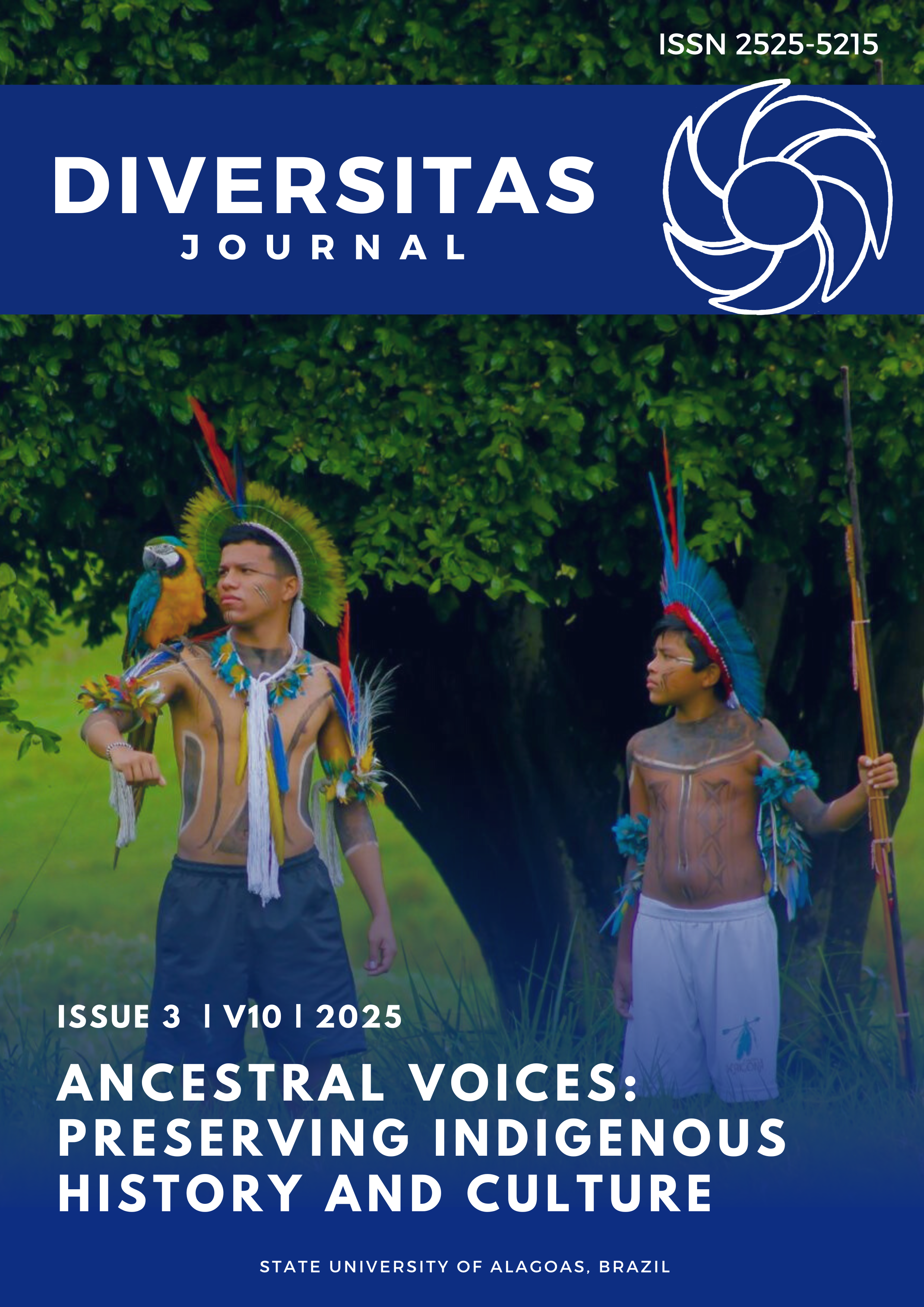the use of gamification in mathematics teaching
DOI:
https://doi.org/10.48017/dj.v10i3.3227Keywords:
Gamification, Teaching mathematics, Digital TechnologiesAbstract
The teaching process underwent several changes and adaptations during the pandemic period with the adoption of emergency remote teaching. Through the search for methodologies that stimulated students' interest in studying, the use of gamification took on a greater proportion in the school environment. This work has the general objective of investigating the effects of using gamification as a methodological resource during the teaching and learning process of mathematics. The methodology was developed based on a qualitative approach, with exploratory objectives and technical participant procedures. The research subjects were 44 students from the 1st year of High School at Escola Estadual Deputado Gilvan Barros, located in the municipality of Girau do Ponciano - AL. The use of gamification in classes presented more advanced results compared to the class that was not contemplated with the use of gamification materials. Therefore, this shows that the protagonist remains the student and that gamification is not the main focus of this trajectory, but rather the process of collaboration and partnership between these tools, teachers, and students.
Metrics
References
Alves, F. (2015). Gamification: como criar experiências de aprendizagem engajadoras. DVS Editora.
Brasil. Instituto Nacional de Estudos e Pesquisas Educacionais Anísio Teixeira (Inep). (2023). Censo da educação básica 2022: notas estatísticas. https://www.gov.br/inep/pt-br/centrais-de-conteudo/acervolinhaeditorial/publicacoes-institucionais/estatisticas-e-indicadoreseducacionais/censo-da-educacao-basica-2022-notas-estatisticas
Brasil. Ministério da Educação. (2017). Base nacional comum curricular. http://basenacionalcomum.mec.gov.br/
Brasil. Presidência da República. (2021). Lei nº 14.180, de 01 de julho de 2021. Institui a Política de Inovação Educação Conectada. https://www.planalto.gov.br/ccivil_03/_ato2019-2022/2021/lei/L14180.htm
Coelho, N. L. N., et al. (2025). Gamificação na educação contemporânea: estratégia de engajamento e personalização do ensino. Revista Multidisciplinar do Nordeste Mineiro, 3(1), 1–14.
Fadel, L. M., & Ulbricht, V. R. (2014). Educação gamificada: valorizando os aspectos sociais. In L. M. Fadel et al. (Orgs.), Gamificação na educação (pp. 6–10). Pimenta Cultural.
Fardo, M. L. (2013). A gamificação aplicada em ambientes de aprendizagem. Renote, 11(1).
Gerhardt, T. E., & Silveira, D. T. (2009). Métodos de pesquisa. UFRGS.
Godoy, A. S. (1995). Introdução à pesquisa qualitativa e suas possibilidades. Revista de Administra-ção de Empresas, 35(2), 57–63.
Mozer, M., & Nantes, E. A. S. (2019). Gamificação no ensino de matemática: das Diretrizes Curricula-res do Paraná à sala de aula, via Plano de Trabalho Docente. Research, Society and Deve-lopment, 8(4), 5.
Pimentel, F. S. C. (2015). A aprendizagem das crianças na cultura digital (Tese de doutorado). Uni-versidade Federal de Alagoas, Maceió.
Prazeres, I. M. S. (2019). Gamificação no ensino de matemática: aprendizagem do campo multiplicati-vo (Dissertação de mestrado). Universidade Federal de Alagoas, Maceió.
Rocha, P. S. R., & Souza, C. S. J. de. (2019). Influência da gamificação no processo de ensino-aprendizagem em uma turma do 9º ano do Ensino Fundamental. In 7º Escola Regional de Computação do Ceará, Maranhão e Piauí, Porto Alegre, RS. Anais (pp. 103–110). Sociedade Brasileira de Computação.
Souza, C. S., Iglesias, A. G., & Pazin Filho, A. (2014). Estratégias inovadoras para métodos de ensino tradicionais: aspectos gerais. Medicina (Ribeirão Preto), 47(3), 284–292.
Tonéis, C. N. (2017). Os games na sala de aula: games na educação ou a gamificação da educação. Bo-okess.
Tori, R. (2010). Educação sem distância: as tecnologias interativas na redução de distâncias em ensi-no e aprendizagem. Editora Senac São Paulo.
Zontini, L. R. S., & Mocrosky, L. F. (2016). O bicho de sete cabeças: uma discussão sobre o professor dos anos iniciais e o medo da matemática. In 12º Encontro Nacional de Educação Matemáti-ca, São Paulo. Anais (pp. 1–12). Sociedade Brasileira de Educação Matemática.
Downloads
Published
How to Cite
Issue
Section
License
Copyright (c) 2025 Wallysson Barbosa Silva, Simone Silva da Fonseca, José da Silva Barros

This work is licensed under a Creative Commons Attribution 4.0 International License.
The Diversitas Journal expresses that the articles are the sole responsibility of the Authors, who are familiar with Brazilian and international legislation.
Articles are peer-reviewed and care should be taken to warn of the possible incidence of plagiarism. However, plagiarism is an indisputable action by the authors.
The violation of copyright is a crime, provided for in article 184 of the Brazilian Penal Code: “Art. 184 Violating copyright and related rights: Penalty - detention, from 3 (three) months to 1 (one) year, or fine. § 1 If the violation consists of total or partial reproduction, for the purpose of direct or indirect profit, by any means or process, of intellectual work, interpretation, performance or phonogram, without the express authorization of the author, the performer, the producer , as the case may be, or whoever represents them: Penalty - imprisonment, from 2 (two) to 4 (four) years, and a fine. ”


















